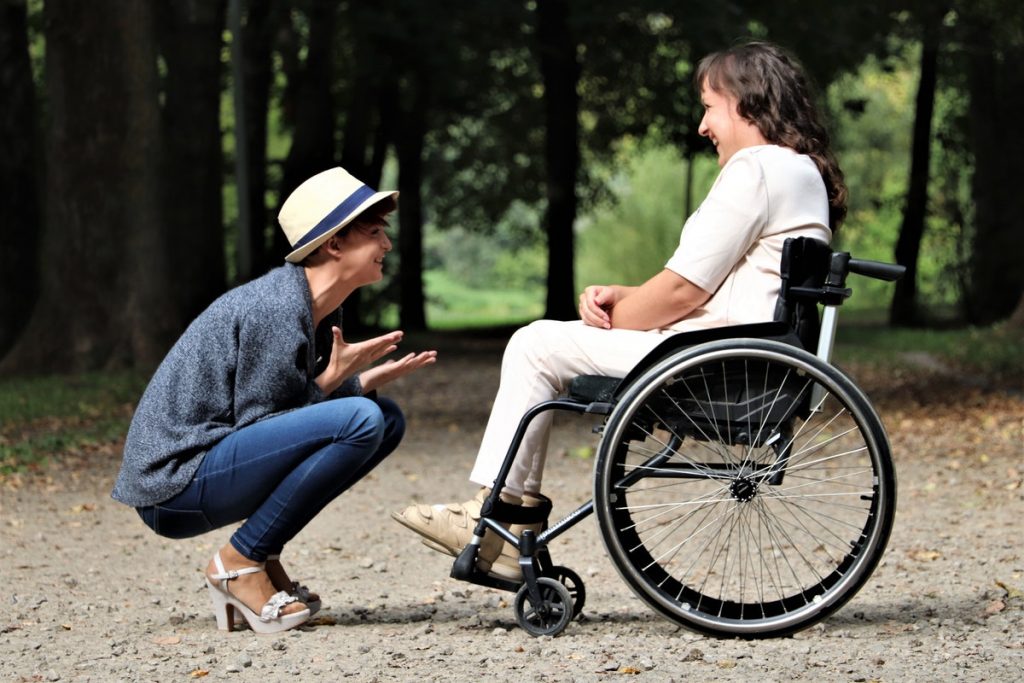Caring for a loved one with a physical disability is never easy. Both of you will undergo a highly emotional phase, dealing with the shock from what happened. Be it a slowly progressing condition or a sudden one due to an accident, the pain, trauma, and mental stress it will cause will be more or less the same.
Suffice to say, no one can prepare for a disability. It can change your life in the most horrible way possible, taking away your abilities to perform the most trivial tasks that you’ve probably taken for granted before. But you don’t have to let it be that way.
Similarly, if you’re a disabled person’s caregiver, you also don’t have to share their misery for life. There are multiple ways to love and support them while giving both of you the best quality of life possible.
That said, here are the ways to support and care for a loved one with a physical disability:
1. Understand Their Condition
Upon diagnosis of your loved one, educate yourself about their condition, and discuss the issue with the rest of your family who will be involved in caregiving. Being properly educated about your loved one’s disability, especially invisible ones that you might think isn’t affecting them much, will help you make sound decisions regarding their health.
Your adequate knowledge will also give you awareness about the challenges your loved one might face due to their disability. Gather information on how to mitigate these challenges, including ways to care for their mental health.
2. Get Support
If your disabled loved one was employed before their diagnosis or accident, help them claim disability benefits for people with physical impairments, preferably with the aid of an attorney to guarantee approval and a speedy process. Having a source of income can boost your loved one’s morale, keeping them from feeling useless.
To improve your loved one’s well-being, find support groups with people going through the same experiences as them. This will make your loved one realize that they aren’t alone in their struggles, which can lift a load of mental strain from you.
3. Allow Yourself to Grieve
Dealing with a loved one being disabled isn’t something you can just get over with. Thus, allow yourself to grieve and adjust to your new situation without rushing. Accept that the grief and sorrow may never go away entirely, and there would be periods where they’d be triggered. However, by giving yourself time to adjust to your new reality, you’ll learn to live with their condition with strength, despite still being plagued with negative emotions.
4. Modify Your Home

If their disability has limited their mobility, your home would need modifications for their convenience. You might need a stairlift, grab bars in the bathroom, walk-in tubs, and others. Find out what modifications will make your loved one’s daily life easier.
5. Empower Your Loved One
Your disabled loved one will naturally grieve over the things that they can no longer do, so empower them by helping them focus on the things that they can still do. Celebrate small milestones, and give them independence on the things that can still perform by themselves. Independence, however limited, will restore their dignity and self-assurance.
6. Take Care of Yourself
Caring for a disabled loved one is arduous, so don’t abandon your own health. Make time for your hobbies, friends, and the activities you enjoy doing. Don’t aim to be a perfect caregiver; be realistic on your expectations, you so can perform your duties with confidence.
It would be normal to feel down and disappointed with yourself from time to time; therefore, nurturing your mental health is critical. If you can no longer carry the burden, hire a caregiver. You can always help your loved one make peace with their condition in ways that won’t compromise your own well-being.

